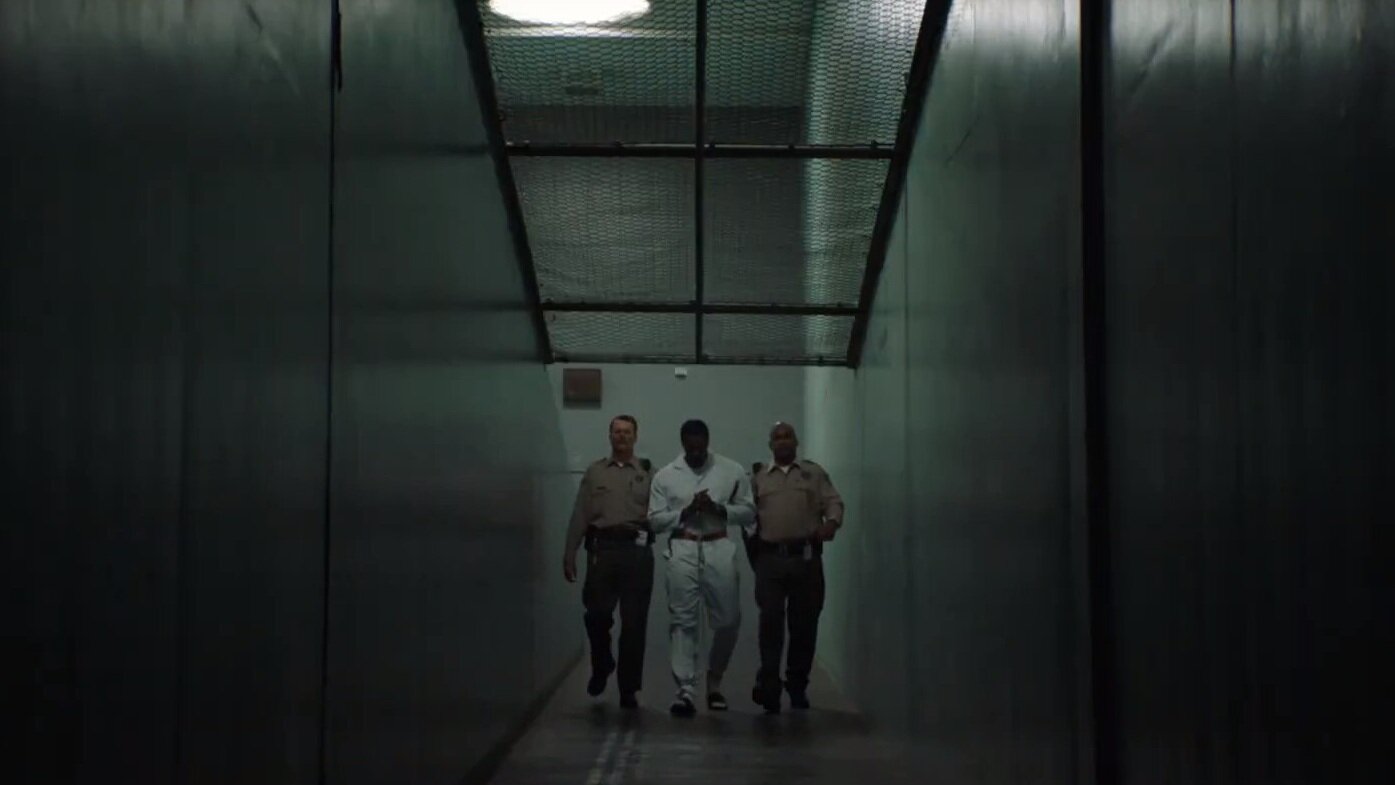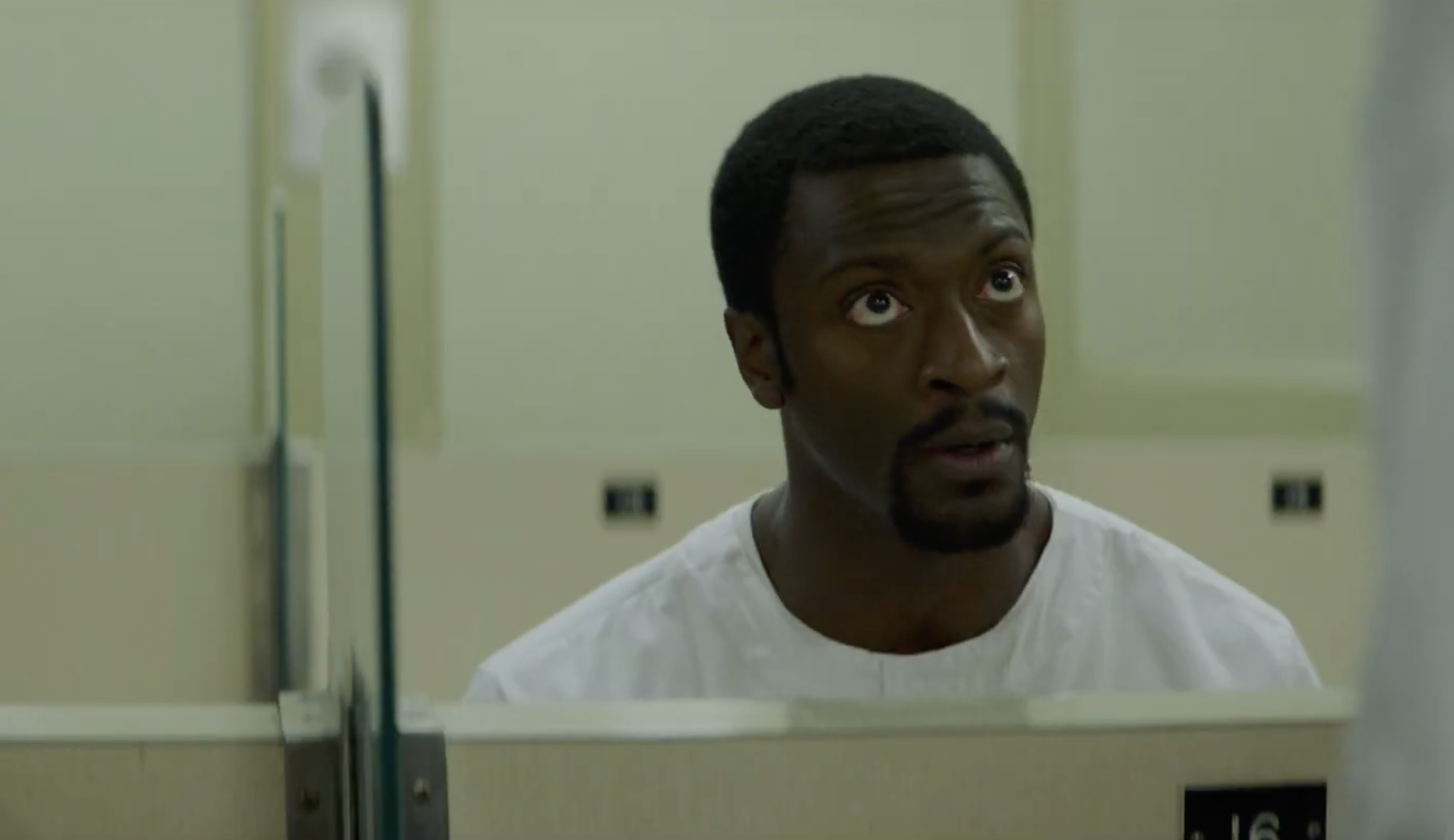Summary
Bernadine is a Warden at a penitentiary that performs lethal injection executions. With her last execution having not gone smoothly, Bernadine finds herself searching her mind and heart for meaning as she prepares for another condemned man’s final sentence.
The Film
“Clemency” is the sort of film that I really enjoy. I know from the outset that I am going to see a movie that will be heavy and probably demand a lot of emotional accessibility on my part but in return I will get to experience something special. It didn’t disappoint. Even as the last few minutes played out, the music thrumming low, and the camera tightening on Alfre Woodard’s (“12 Years a Slave”) face, I was gripping the arms of my seat, thinking, “Here it comes. The moment of transcendence.”
That is the moment I was hoping for. I knew that movie would have amazing performances and it did. I knew that I would be challenged to see things from a perspective not my own and I was. What I was hoping for but wasn’t sure would be there was the ‘spiritual moment’ in film or what some call the transcendent moment.
As I processed the film along with a small discussion group, people kept finding themselves drawn into discussions of whether Anthony Woods (Aldis Hodge, “Hidden Figures”), the man sentenced to die, was guilty or innocent, whether justice could ever be attained in an imperfect society, and whether the death penalty s something we should do anymore. These were all the sorts of questions that I would expect from even a mediocre film on this subject. They are also questions that I feel the film is hardly interested in at all. Very few discussions in it are about arguing the case for either side of that issue’s debate.
What few were saying or struggling to say was how the last shots of the film affected them. Not in a convince-you-to-change-your-mind way but in a visceral-feel-it-in-your-gut way. There is something in the dynamic between Bernadine and Anthony that communicates more than simple words are able. The look he gives her and she gives him, the pain on her face, the thinking behind her eyes as she searches for meaning and a handhold for her sanity to grip on to; it is all there on the screen in a way that is unique to cinema.
It builds slowly from the opening scenes where we see an execution go somewhat wrong and we realize that this is not the only area of Bernadine’s life that is filled with tension. Her marriage is stale and falling apart, it seems one of her better friends is a lawyer who is opposed to her professionally, and she can’t seem to get Anthony Woods, the next man to be executed to open up.
Anthony, on the other hand, is a prisoner who seems to be clinging to every bit of hope or control in his life as it draws to a close. As a lawyer, old flame, and prison chaplain continue to hold out appeals, knowledge of his son, and the mercy of God to him, he responds to each in kind but with the Warden, hardly a single personal word or sentiment is shared between them.
Perhaps, she feels she has nothing to say to him or offer him. After all, she knows that the appeals will most likely be denied, the family will ultimately be relegated to a viewing room if he’s lucky, and who knows what comfort there is on the other side of the veil. What she knows is how this journey ends for him; next to her, as she gives the order to terminate.
The sense of foreboding in this film as the inevitable approaches is thick and bitter but is also necessary for the break that comes to Bernadine in its final moments. The storm clouds that have been gathering split and some form of clemency comes, not for Anthony, but Bernadine who has been living in the lonely tension created in her by her profession. This moment doesn’t come because she has an intellectual epiphany and quits her job, or because a politician commutes a sentence. It comes through the pain and suffering that she is enduring and the eyes that see her suffering for what it is. It comes in the eyes of a dying prisoner.
Many times, we hail a movie as great because it proclaims a statement we agree with. We want a film to say “Capital Punishment is inhumane,” or, ”Capital Punishment keeps us safe.” We want it to take sides and proclaim ours as the winner. One of my favorite things is when a film refuses to do this and chooses instead to lean hard into the way that life actually is; full of questions, uncertainty, and a plethora of opinions.
“Clemency” is such a film that seeks to transcend debate by avoiding all of the typical talking points of either side and present us with a character who is merely a cog in the machinery as they examine their own essence as a cog and come to grips with it. The transcendent moment is one in which the character is confronted with the reality of who they are as a human being, how they are seen by others, and experiences some complicated form of catharsis as they ‘feel’ something that rises above simple descriptors like sad, conflicted, or guilty.
They experience one of those occasions we have all had when the sense of weight in a moment is so heavy that tears well up in our eyes. The weight we feel when we realize that we are no more and no less than human, the same kind of human as everyone else is. The sense of belonging that we experience in that split second is a reflection upon the fact that we all share the human pain, human joy, and human experience.
Review Written By:








